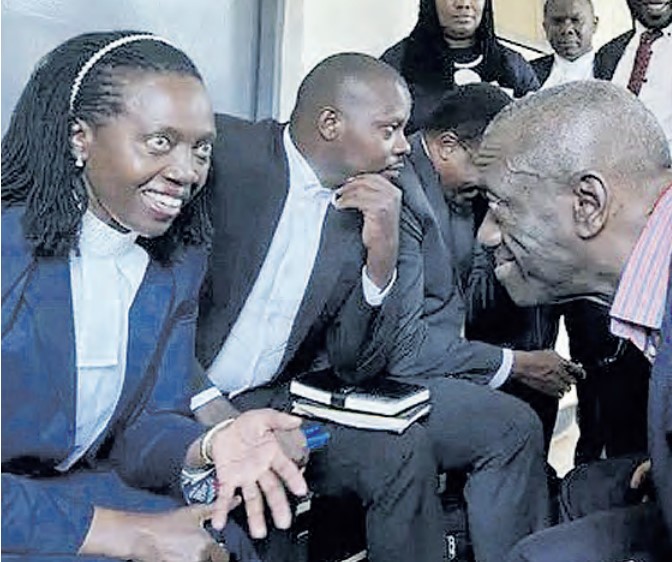

Lawyers smell death knell to dreams of cross-border practice after Uganda denied Martha Karua the licence to defend the country’s opposition chief Kizza Besigye.
After dragging its feet for days, the Uganda Law Council, on December 6, rejected Karua’s application to be allowed a temporary licence to represent Besigye and his political ally Hajj Obeid Lutale in courts of law.
The duo is in court for allegedly plotting against the country’s military targets.
They were abducted in Nairobi late last month while they waited to attend Karua’s book launch.
They were then spirited across the Busia border to Uganda where they were detained in military facilities before being arraigned in a court martial.
Newly elected president of the East Africa Law Society Ramadahn Abubakar says the decision by the country’s law council ran afoul the spirit of East African Community that aims at progressive integration and erodes the gains that have been made in pursuing cross border practice of advocates.
“This arbitrary decision undermines the spirit of regional integration as provided for under the Treaty for the Establishment of the East African Community and erodes gains made towards actualizing cross-border legal practice in the East African region,” he said.
Abubakar says the move puts into sharp focus the willingness of EAC Partner States to fully implement the Common Market Protocol that guarantees free movement of people, goods, services and capital in the East African Community Under Article 126 of the treaty that establishes the East African Community and Article 11 of the Protocol that establishes the EAC Common Market.
EAC partner states have an undertaking to mutually recognise the academic and professional qualifications of their citizens, including their experience, requirements met and licences or certifications granted in other EAC partner states.
Abubakar said the rejection of Karua’s application breached these.
“Martha Karua, SC (senior counsel), a highly respected and licensed Kenyan lawyer has met all the requirements including those specifically required for temporary admission to practice as an advocate in Uganda. See Section 18 of the Advocates Act, Uganda.”
In denying Karua the practice licence, he added, the Ugandan law council has directly impeded not only her ability to represent her clients in Court but also the right of the accused persons to be represented by counsel of their choice as enshrined in Article 7( 1 )(c) of the African Charter on Human and Peoples’ Rights.
Law Society of Kenya president Faith Odhiambo said she feared for the concept of mutuality and reciprocity that has been practised in allowing advocates from EAC region to practice in the jurisdictions.
“Mutuality, respect, and goodwill are the fundamental basis for cross-border practice and cooperation,” Odhiambo said.
“We must either foster frank engagements that benefit everyone, or decide to grow independently without handicapping ourselves in non-reciprocal arrangements,” she added













